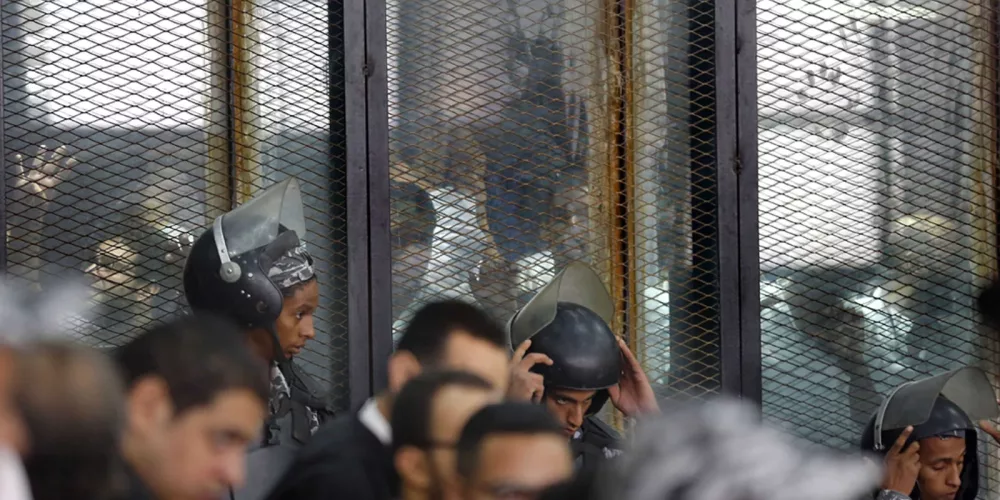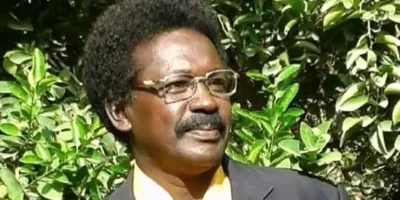The ” Committee for Justice” stated that the ongoing arbitrary arrests in Egypt, along with referrals to exceptional investigation bodies such as the Supreme State Security Prosecution, constitute a grave violation of human rights. These measures are used to legitimize prolonged detention before trial, particularly in politically charged cases. The committee noted that these practices are part of a systematic policy aimed at restricting fundamental freedoms and silencing dissenting voices in the country, reflecting the continued deterioration of human rights conditions in Egypt.
This comes as the committee reported the investigation of 65 new defendants before the Supreme State Security Prosecution between March 2 and March 6 — a span of just four days — in rapid and non-transparent procedures, without the availability of precise information or official documents from the prosecution regarding the charges against them. Meanwhile, pro-government Egyptian newspapers celebrated the release of 56 other defendants from the same prosecution in connection with 18 politically-related cases, claiming that this was evidence of the political leadership’s commitment to supporting freedoms in the country.
CFJ emphasizes that the human rights reality in Egypt starkly contradicts the statements made by Egyptian authorities and their loyalist media, which present an unrealistic image of the country’s human rights situation. While these statements attempt to enhance Egypt’s international image, the reality remains filled with serious human rights violations committed on a daily basis, starting with arbitrary arrests. The committee adds that pro-government media plays a key role in distorting facts, portraying the release of some detainees as evidence of “improving” human rights conditions while ignoring the reality that these releases are part of a propaganda strategy and do not signify a genuine shift in repressive policies.
CFJ also argues that these continuous arbitrary arrests openly violate Egypt’s 2014 Constitution, which stands as the country’s supreme legal document. Article 54 of the constitution states that “personal freedom is a natural right, safeguarded and inviolable, and no one may be arrested, searched, detained, or have their freedom restricted except by a reasoned judicial order required for investigation.” Article 55 further affirms that “anyone arrested, detained, or whose freedom is restricted must be treated in a manner that preserves their dignity, and must not be subjected to physical or psychological harm.” Nevertheless, these provisions are repeatedly disregarded, with arrests carried out without a justified judicial order, and detainees are often deprived of their basic rights.
Egypt’s Criminal Procedure Law also outlines key safeguards to protect the rights of defendants, including Article 134, which specifies that pretrial detention must be justified by sufficient evidence. However, pretrial detention is often misused as a punitive tool or political pressure tactic, with repeated extensions imposed without adequate legal grounds, violating both the spirit and letter of the law.
Arbitrary detention also directly contradicts international human rights law, including Article 9 of the Universal Declaration of Human Rights, which states that “no one shall be subjected to arbitrary arrest, detention, or exile.” It similarly violates Article 9 of the International Covenant on Civil and Political Rights, which Egypt has ratified, affirming every individual’s right to liberty and security of person while prohibiting arbitrary arrest or detention.
CFJ firmly rejects the narrative promoted by pro-government media in Egypt that claims a human rights breakthrough regarding the pretrial detention crisis. The committee asserts that improving Egypt’s human rights record can only be achieved through concrete actions on the ground, including ending arbitrary arrests, releasing all political detainees, ensuring fair trials, and holding perpetrators of human rights violations accountable. Propaganda alone cannot conceal the harsh reality faced by thousands of Egyptians who are deprived of their most basic human rights.
CFJ also stresses that as a state party to these international treaties, Egypt is legally and internationally obligated to uphold its commitments, including ensuring fair and public trials within a reasonable timeframe and refraining from using pretrial detention as a punitive or politically repressive tool. The committee calls on the Egyptian authorities to immediately release all arbitrarily detained individuals and put an end to the policy of arbitrary arrests used to suppress dissent and restrict freedoms.






